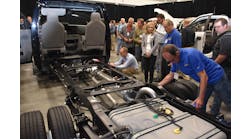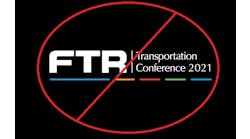My wife watches a lot of the home fixer-upper shows, looking for good ideas, sure, but mainly she’s looking for new excuses to wield her power tools. (Yes, I married up.) These shows all follow the same ‘plot’: There’s a house, a plan to make it marvelous while keeping to a budget, and the discovery of an unexpected issue (hidden code violations, a sinking foundation, a critter infestation) that could put the project in jeopardy.
So on one recent episode, the show’s host has brought in a specialist to deal with a worrisome trouble spot.
“How much of a problem is this going to be?” the host asks, very concerned.
The specialist strokes his chin and ponders, looking a little worried before he replies: “Let’s not think of it as a problem. Let’s call it a solution opportunity.”
And that is brilliant. In an instant, my pandemic prison became of palace of possibilities. If you’re a solution provider, these could be great times indeed. Theoretically.
But overcoming a pandemic, a cratered economy, and social strife isn’t as simple as adopting an optimistic outlook—although that’s a start.
As long-time readers know, Trailer/Body BUILDERS has devoted its June issue to the TTMA annual convention since like forever, or almost: 60 years, anyway. So the cancellation of the 2020 meeting was going to be a big problem for the magazine. Instead, it became a wonderful opportunity.
Just as TTMA carried on as best they could—converting in-person meetings to conference calls; mailing awards instead of inviting recipients onto the stage—we’ve done our best this month to recreate convention coverage without the benefit of a convention. Thanks to TTMA President Jeff Sims, I was able to chat with the past and present chairmen to get their respective takes on the state of the industry.
Stoughton’s Bob Wahlin must watch the same home repair channel, because he immediately pointed to the “opportunity” today’s challenges provide.
“I think the companies that are going to significantly advance coming out of this [downturn]—and in particular the trailer industry—are the companies that are going to have the stomach to continue to invest in people, and invest in their plants and equipment for automation. They are going to win,” Wahlin said. “They’ll look at the downturn as an opportunity to improve … They can drive that efficiency through the organization because [the market] will return; it will come back.”
New TTMA Chairman John Cannon of Wabash likewise sees opportunity in traditional problem areas. Among the top-of-mind items he plans to address in his association leadership role are tanker safety and virtual reality training.
Cannon noted that it’s been three decades since the petroleum tank industry came together to develop the ground-level trailer standards. Similarly, stakeholders in the chemical tank space now have a vision for ground-level units by mid-decade.
The good news is that the DOT is on board with regulatory support, but there is still some resistance to change within the chemical industry.
“We have to overcome that inertia, and the loss of millions, if not hundreds of millions of dollars, for capital investments that were made at loading racks and consignee facilities, to adapt for a new reality,” he said. “Wherever possible, loading should be done at ground level.”
Similarly, Cannon is enthusiastic about a VR training module he’s seen that allows chemical handlers to practice tanker loading and unloading. Carriers likewise could use VR to train drivers for such critical tasks.
“Rather than, say 100 different fleets investing tens of millions, even hundreds of millions of dollars in their own training modules, why not have an industry-wide effort via virtual reality to have a consistent way of delivering this in a very professional way, eliminate a lot of duplication of effort, and make sure that we have the very best training?”
Finally, a special thanks for the relentless effort by TTMA’s Administrative Manager Carrie Renuart, who pulled together supplier presentations, safety award winners, and committee minutes. And aso nother June TTMA issue is in the books, and the streak continues.
But back to house repairs. Appropriately, Lowe’s—the big box purveyor of things home improvement—advertises on the DIY shows. The ad explains that safety is more than a priority for the company, because priorities shift.
Again, brilliant. I learn a lot when other people work on my house.










